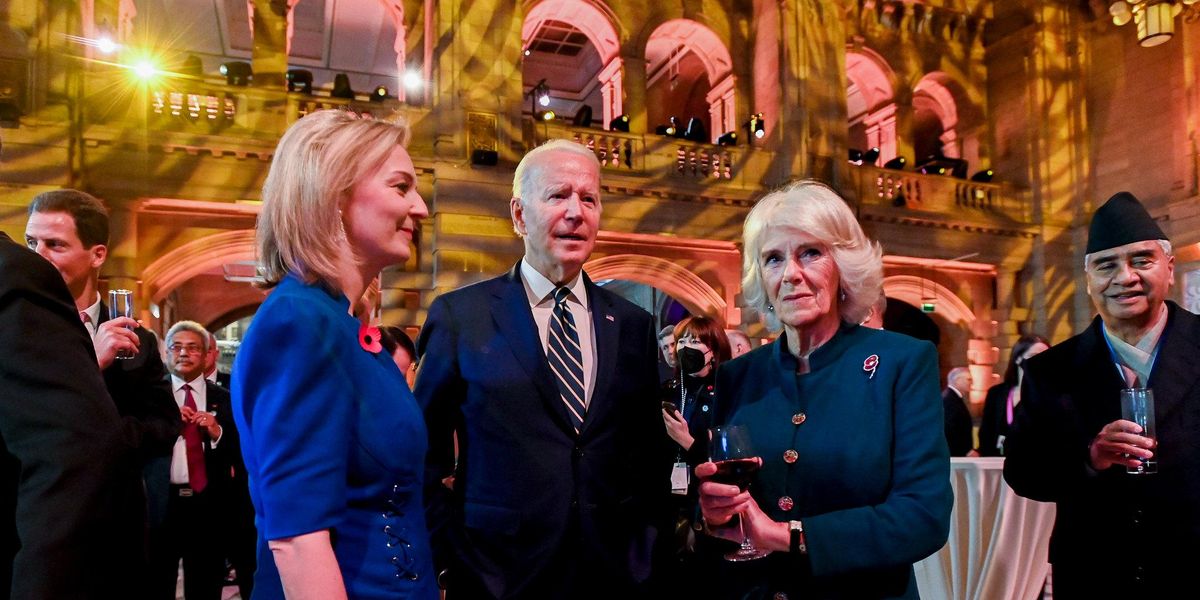Flipping the climate debate from costs to benefits: Susan Anenberg
Focusing on the benefits—as opposed to costs—can change the way people view climate change mitigation and serve to motivate action.
The world's governments are gathering in Glasgow to work towards an international climate change agreement. The last 30 years since the United Nations Framework Convention on Climate Change launched has seen a lot of ups and downs.
The U.S. has been a mercurial partner. National governments have argued over costs, responsibility, equity, and accountability. More recently, there has been a growing recognition that what the world decides to do on climate change has major implications for the health of people around the world.
Public health professionals, clinicians, and even prestigious medical journals have taken unprecedented action to raise awareness about the link between good health and a stable climate. The Lancet Countdown report highlighted that in a more unstable future of accelerating temperature rise, hospitals and emergency departments will likely see more patients affected by extreme heat, extreme weather events, infectious diseases, food insecurity and undernutrition. My own research has shown that climate change can worsen respiratory and cardiovascular health outcomes from wildfire smoke, wind-blown dust, and longer pollen seasons.
These climate-sensitive health effects are not some distant problem happening to someone else at some point far in the future. They affect our communities now.
By burning less fossil fuel, we can avoid these negative consequences, while also making our communities healthier, more sustainable, and more equitable. But advancing ambitious climate policy has been slow going. One reason is the perceived cost-benefit imbalance when it comes to reducing greenhouse gases.
On one hand, the costs of changing our system to burn less fossil fuels are considerable and immediate. On the other hand, the benefits of keeping global temperatures from rising above 1.5 degrees Celsius, the agreed upon target for avoiding dangerous health consequences, are long-term and diffuse, playing out over decades and centuries. The climate effects are also global, with less tangible and observable effects locally. When faced with local and immediate mitigation costs and a mountain of local and immediate public needs, governmental action to reduce global, long-term climate change is a challenging prospect.
Focus on the benefit of climate change action
And yet, the societal improvements from burning less fossil fuel are not just limited to stopping climate change. By transitioning to more sustainable and healthful transportation, energy, agriculture, and industrial systems, we also benefit from clearer air, cleaner water, expanded natural environments for both recreation and ecosystem protection, increased physical activity, reduced congestion and noise, cost savings, green jobs, and a range of health improvements.
These additional benefits often outweigh the cost of action, making many carbon reducing initiatives free from a societal perspective. They also occur locally and relatively immediately where emissions are reduced. Focusing on the benefits—as opposed to costs—can change the way people view climate change mitigation and serve to motivate action.
I'm encouraged that governments are increasingly embracing this more holistic view of the societal benefits of greenhouse gas reductions. As of October 2021, 14 countries are expected to include short-lived climate pollutants, air pollutants that harm both health and the climate, in their Nationally Determined Contributions under the Paris Agreement.
A number of cities, from Buenos Aires to Addis Ababa, have also begun to assess the air quality and health benefits of their Climate Action Plans.
Health consequences overlooked
This year's meeting of climate negotiators will also ramp up this much needed focus on the climate-health connection. The World Health Organization is hosting a day-long conference on the topic. A Health Pavilion will feature a rich line-up of health-focused events. I'll be speaking at a side event on Arctic climate change about the need to shift away from fossil fuels.
Despite this progress, the environmental and health consequences of reducing fossil fuel burning are still often overlooked in decisions on whether and how to reduce greenhouse gases. Less than 20% of countries have assessed the health benefits of national climate mitigation policies, and even fewer have done so as part of their Paris Agreement commitments. In part due to continued subsidies for oil and gas production, our governments currently plan to produce more than twice the amount of fossil fuels as would be consistent with limiting warming to 1.5 degrees C. Omitting these social, environmental, and health benefits frames fossil fuel-reducing actions as prohibitively costly and challenging to implement. In reality the societal benefits typically outweigh the costs and would be appealing to decision-makers as well as the general public alike.
As our governments meet in Glasgow to decide our fates, they should bear in mind that when it comes to climate policy, what is good for the global population in the future is also good for communities here and now.
These free, local, immediate, and persuasive benefits of burning less fossil fuel have the power to flip the climate action debate from costs to benefits and motivate the health-protective action we need.
Susan Anenberg, PhD, is an Associate Professor and Director of the Climate and Health Institute at the George Washington University.
Her views do not necessarily represent those of Environmental Health News, The Daily Climate, or publisher Environmental Health Sciences.
Banner photo: Foreign Secretary Liz Truss, US President Joe Biden and Camillla, Duchess of Cornwall, talk at a COP26 reception at the Kelvingrove Art Gallery. (Credit: COP26/flickr)







